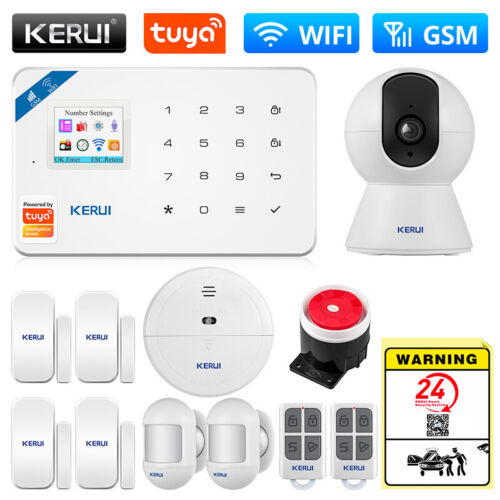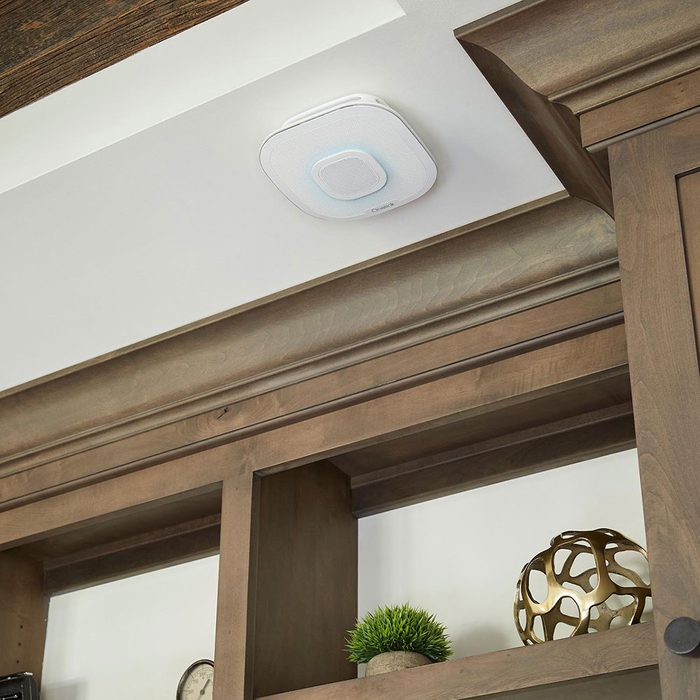
Wireless security systems offer many benefits over traditional wired systems. One advantage is that they are simpler to use. They don't have a complex alphanumeric keypad. Instead, they have colorful touchscreen displays. These systems are easier to upgrade than a hardwired system and can be easily migrated to the wireless system from all your existing devices. You simply need to connect your old hardwired devices with a wireless panel by using a wired-to-wire converter.
Disadvantages of wireless home security systems
While wireless home security systems have many advantages, they also have their drawbacks. First, they can be hampered by interference or failure. These issues can result from many factors, including walls and power lines. Weather conditions and malfunctioning sensors can also affect them. This can result in false alarms that could make your property and you vulnerable.

Another disadvantage of wireless home security systems is their limited range. They only have an open-air range that is a few hundreds feet. This is insufficient for larger houses. Many wireless systems run on batteries, so they will not work if the batteries go dead. This could lead homeowners to forget about checking their batteries. Wireless home security systems can't be used if they aren't installed close to the central control unit.
You can customize wireless home security systems. Some wireless systems let you remotely manage your system via an app for your smartphone. Others require that a technician visits the property to set up hard-wired systems.
Cost of wired home security system
It is more expensive to install a wired system than a wireless one if you want home security. A wired system is powered by electricity and requires sensors to be installed on windows and doors. In addition to the upfront costs, you may also need to pay a monthly monitoring fee. Wired systems need to be installed by a professional. Some companies offer free consultations to determine which type of system would be best for your home and budget.

The cost of wired security systems for homes varies depending upon the size and monitoring service. Many providers offer a discount on installation when monitoring is included. Although the installation is typically done by a security technician or electrician, it can also be completed by general contractors or electricians. Because wired systems require more labor, they are more expensive per hour. You may need to maintain them more frequently.
FAQ
What's the difference between security cameras and surveillance cameras?
Surveillance cameras may be used to monitor, but security cameras can also be used to protect.
Each type of camera has its pros and cons. Their main differences are the types of images they capture. Surveillance cameras record video with slow motion so that you can view what's happening right now. Security cameras however, record video but not still photos. These images can be viewed later.
What is the best security system?
The best security system to install depends on how much you value your home and belongings. An inexpensive alarm system that doesn't offer much protection can be chosen. Or you can get a more advanced one which offers better features like remote monitoring, video surveillance, and access control.
Can ADT be hacked?
ADT security is the oldest home alarm system available. ADT Home Security System continues to be considered the safest option by many customers. Its reputation for being reliable and dedicated to protecting homes against fire and burglary is something they trust.
However, hackers can infiltrate even the most trusted organizations and steal sensitive data. Hackers have the ability to hack into networks and steal sensitive data at any time. If a hacker manages to infiltrate your network, they can access everything on the computer and modify the important settings. Hackers can, for instance, delete files and change passwords. It is important to realize that hackers may not be able to see your files or access your home. It is important to be armed with information about how to protect your systems.
Statistics
- Related questionsHome security systems that are 100% DIY (safewise.com)
- Most home security companies will charge you around 75% of the remaining term of your contract if you cancel early—and some require 100%.Related questionsWhat type of contract length can I expect from security providers?Home security system cancellation (safewise.com)
- Most home security companies will charge you around 75% of the remaining term of your contract if you cancel early—and some require 100%.Related questionsWhat type of contract length can I expect from security providers?Home security system cancellation (safewise.com)
- Depending on your insurance, 24/7 professional monitoring may qualify you for as much as 15% off your premium. (safewise.com)
External Links
How To
How to Install an Home Security System
A home security camera is a device that monitors your house and alerts you when there's activity. It could consist of a motion sensor and doorbell camera as well as smoke detector, smoke detectors fire alarm, flood alerts, carbon monoxide detectors and burglar alarms. A home security package usually includes one or more sensors (e.g. a motion detector), which send signals whenever they detect sound or movement. The signals are then sent by the sensors to a control center where they are recorded and monitored. The control panel will send an alert to your smartphone, tablet, computer or voice assistant if there is a problem, such as someone breaking into your home. The control panel will notify you immediately so that you can take corrective action.
The first step to installing a home security system is choosing the right type of sensors for your home. There are two main types: passive and active sensors. Passive sensors don’t require batteries. They only pick up sounds, vibrations and other signals from their environment. These include buzzers, sirens and doorbells. Active sensors transmit data using electricity. This type of sensor can be found in cameras and motion sensors.
There are many brands of sensors today. Each brand has its pros and cons. For example, some sensors are weatherproof, while others aren't. Some come with built-in speakers so you can hear them even if they're outside. Others are only for use inside. Some are basic while others offer advanced features, such as night vision.
After choosing the best sensor type for your property you can choose a manufacturer. This will ensure that your sensors are compatible. You should find plenty of choices at your local hardware shop.
Once you have decided on a brand to use, it is time to decide on how many you want. Depending upon whether they live alone or in a group, most people begin with one or two sensors. However, if you plan to add additional sensors later, you might consider buying extra than you think you'll need now.
Next, consider where you want to put your sensors. Do you want them near doors and windows? Or do you prefer having them hidden away? Before you put them anywhere on your property make sure you get permission. You should also ensure that they don't interfere with electrical outlets or other property features.
Now that you know where you want to put your sensors, you'll need a way to connect them to your control panel. A power adapter or battery package may be required depending on your setup. Once everything is in place, you can start to monitor your property.